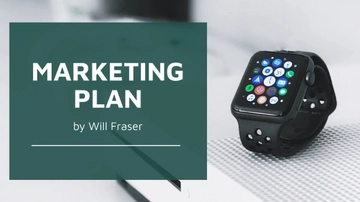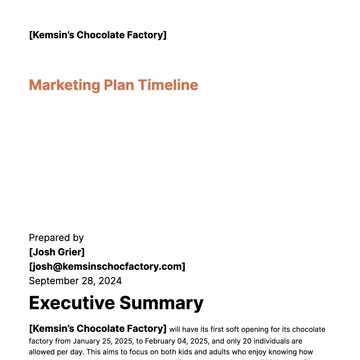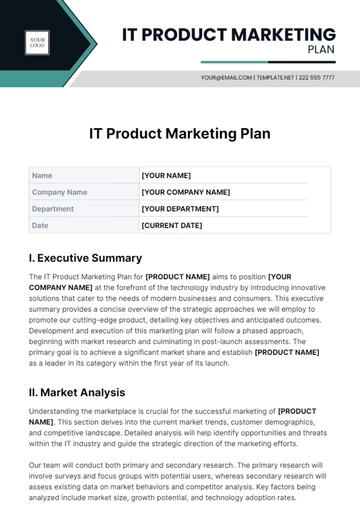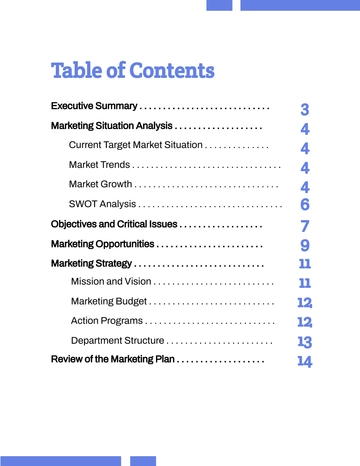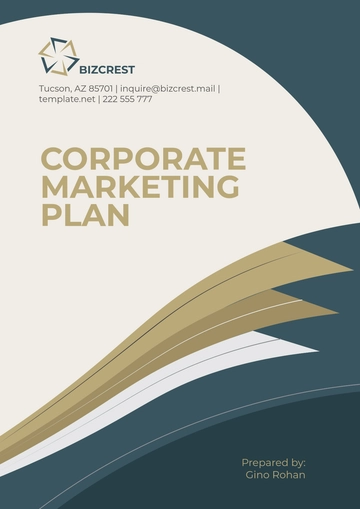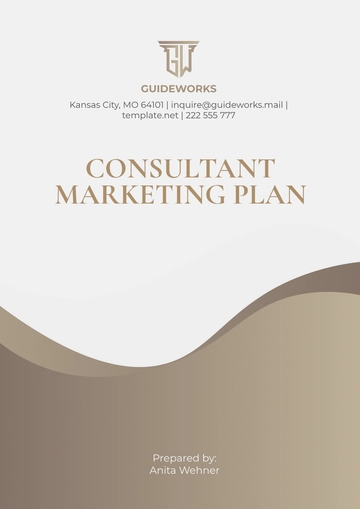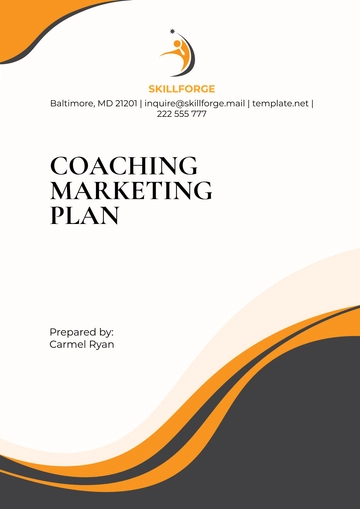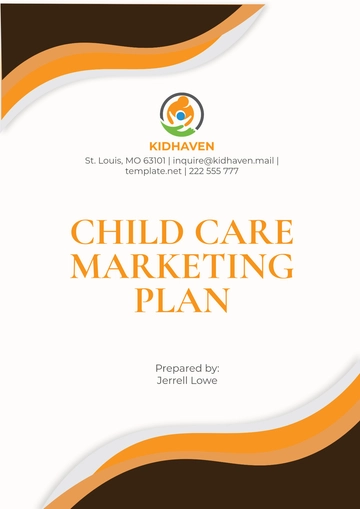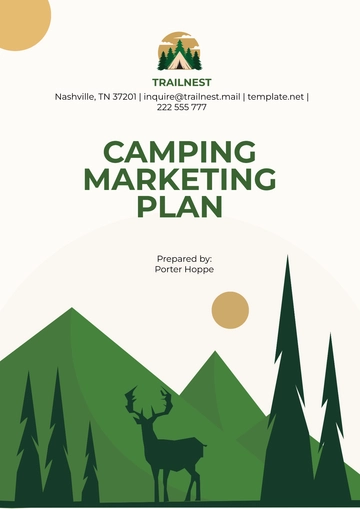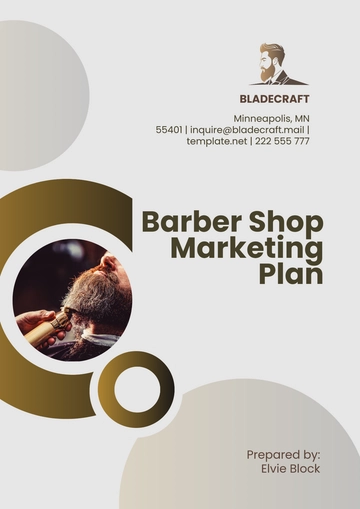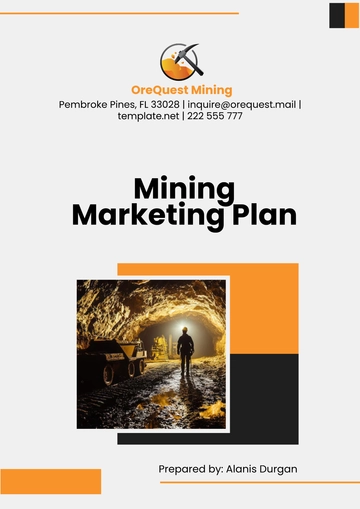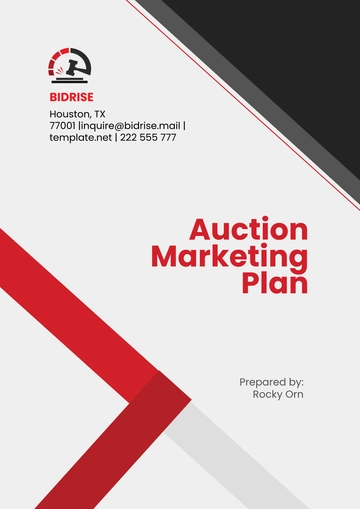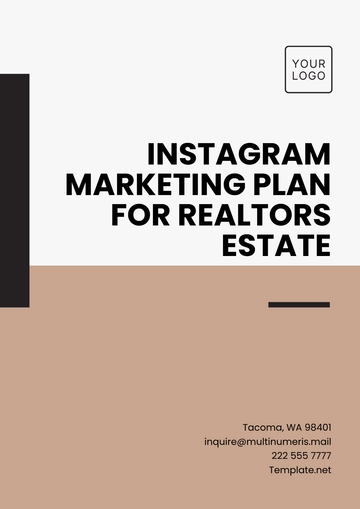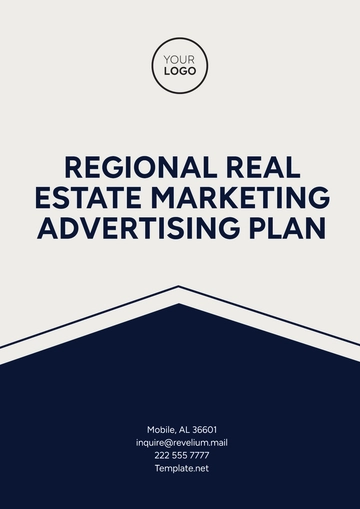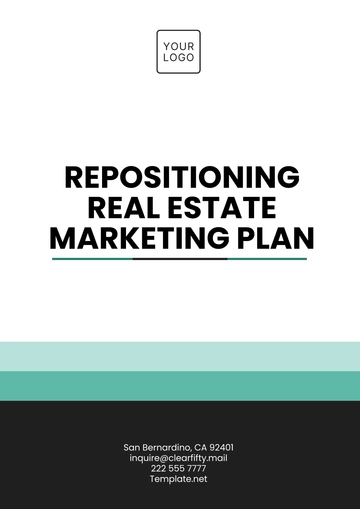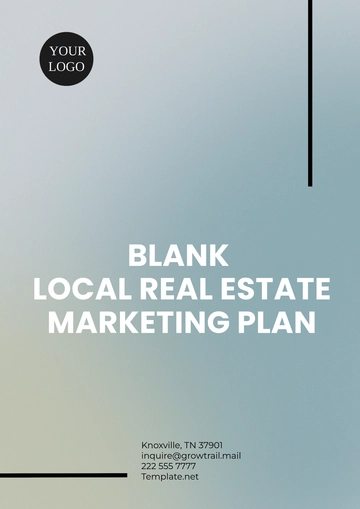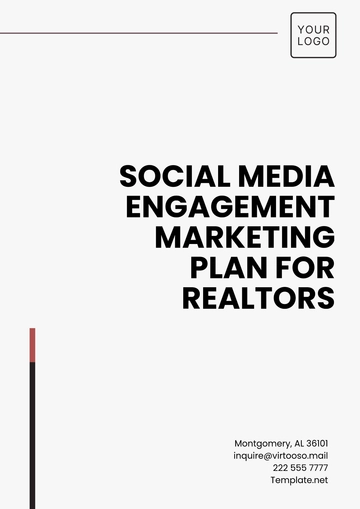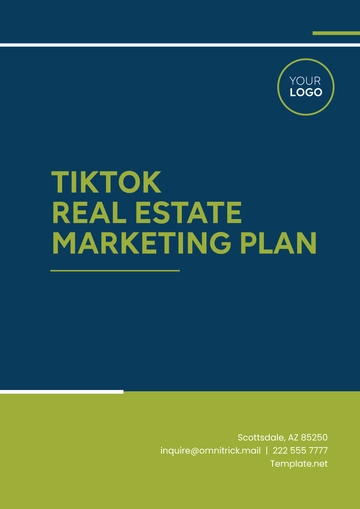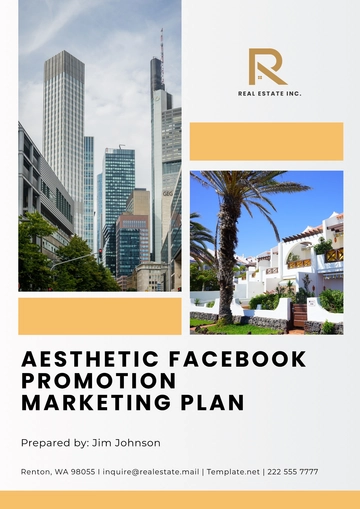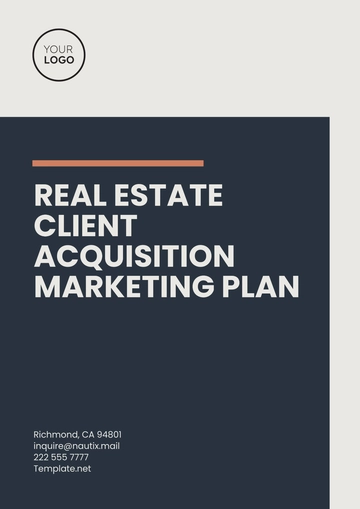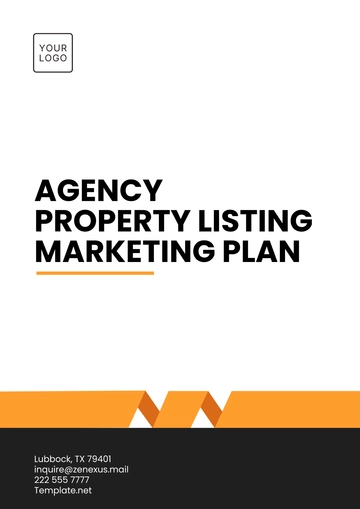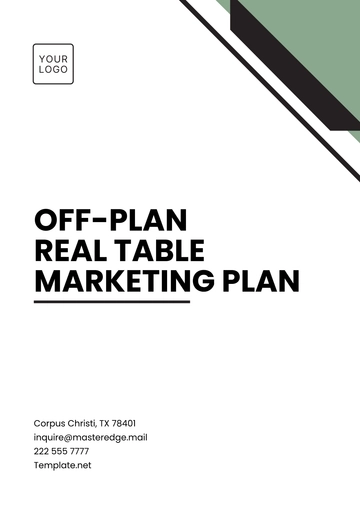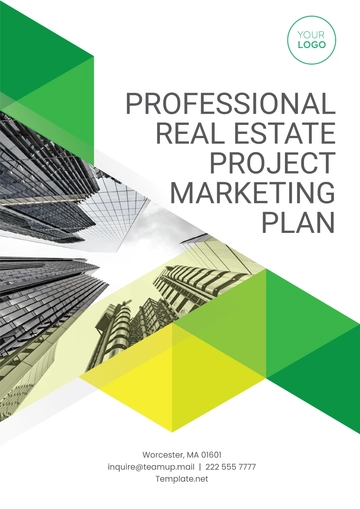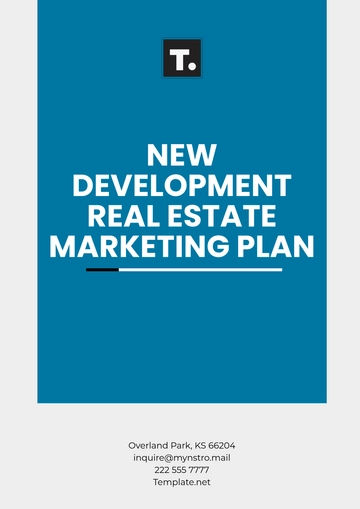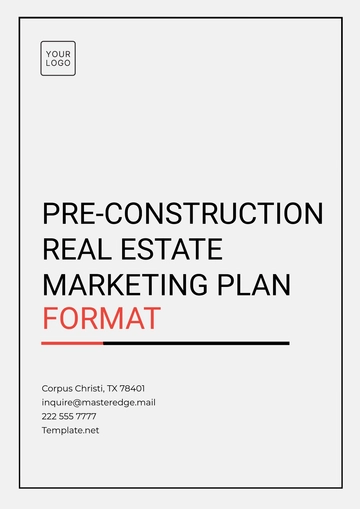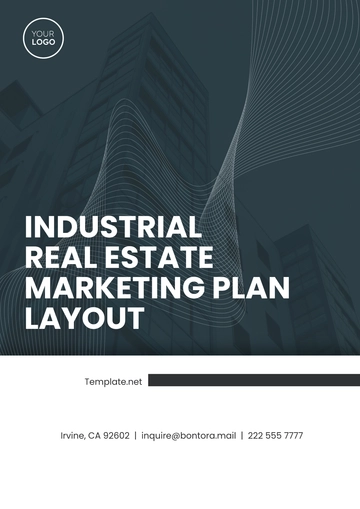Free Music Marketing Plan
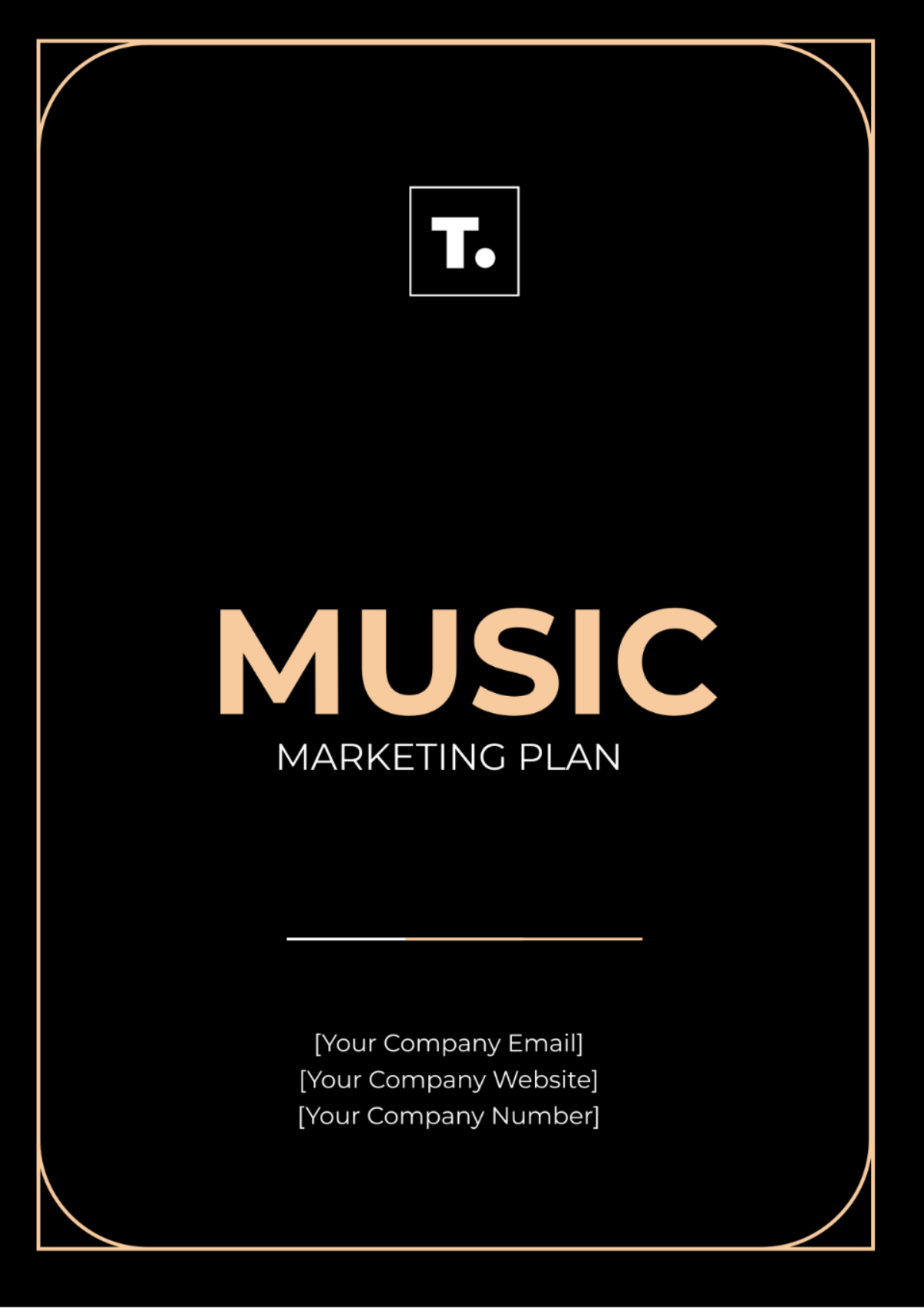
Prepared by: [YOUR NAME]
I. Executive Summary
The Harmony Music Festival is an annual event celebrating music and culture, featuring top artists from various genres. Hosted by [Your Company Name], this festival aims to provide a memorable experience for music lovers and enthusiasts alike.
II. Objectives
A. Primary Objectives
Increase ticket sales by 30% compared to the previous year.
Enhance brand awareness and recognition for MelodyMakers Entertainment.
Engage with fans and create buzz on social media platforms.
Establish Harmony Music Festival as a leading event in the music industry.
B. Secondary Objectives
Secure sponsorship deals with 5 major brands to support the festival.
Attract 500 international attendees to increase diversity.
Collaborate with local artists and vendors to promote community involvement.
Collect feedback from attendees to improve future editions of the festival.
III. Target Audience
The Harmony Music Festival targets music enthusiasts, festival-goers, and fans of various genres, including:
Millennials and Generation Z
Music aficionados and collectors
Concert and festival attendees
Travelers seeking unique cultural experiences
IV. Marketing Strategies
A. Pre-Festival Marketing
Social Media Campaigns: Launch targeted ads on platforms like Instagram, Facebook, and Twitter to promote lineup announcements, ticket sales, and contests.
Email Newsletters: Send out regular newsletters to subscribers with exclusive updates, behind-the-scenes content, and special offers.
Content Creation: Produce engaging blog posts, videos, and playlists related to the festival's theme and artists to build anticipation.
Influencer Partnerships: Collaborate with social media influencers, musicians, and celebrities to reach new audiences and drive ticket sales.
B. On-Site Activation
Branding and Signage: Create visually appealing signage, banners, and stage setups featuring MelodyMakers Entertainment branding throughout the festival grounds.
Interactive Experiences: Offer photo booths, VR activations, and interactive installations for attendees to engage with and share on social media.
Merchandise Booth: Set up a merch booth selling exclusive festival merchandise, including apparel, accessories, and collectibles.
Artist Meet-and-Greets: Arrange meet-and-greet sessions with select artists to enhance the fan experience and create memorable moments.
C. Post-Festival Engagement
Social Media Recap: Share highlights, photos, and videos from the festival on social media platforms to keep the momentum going and encourage user-generated content.
Thank-You Emails: Send personalized thank-you emails to attendees, sponsors, and partners, expressing gratitude for their support.
Feedback Surveys: Gather feedback through post-event surveys to identify areas of improvement and collect testimonials for future marketing efforts.
Early Bird Ticket Sales: Launch early bird ticket sales for the next edition of Harmony Music Festival, offering discounts to previous attendees and subscribers.
V. Budget Allocation
A. Marketing Collaterals
Design and printing of banners, posters, and flyers: $10,000
Creation of promotional videos and graphics: $8,000
Development of website and landing pages: $5,000
B. Advertising
Social media advertising budget: $15,000
Influencer partnerships and sponsored content: $12,000
Radio and digital advertising campaigns: $10,000
C. Festival Production
Venue rental and setup costs: $20,000
Stage production and technical equipment: $15,000
Security and emergency services: $18,000
D. Miscellaneous
Artist fees and travel expenses: $25,000
Staffing and personnel costs: $30,000
Contingency fund for unforeseen expenses: $10,000
VI. Timeline
A. Pre-Festival
March 1: Launch social media teaser campaign.
March 15: Announce lineup and ticket sales.
April 1: Implement influencer partnerships and collaborations.
April 15: Finalize festival logistics and partnerships.
B. Festival Days
May 10: Festival setup and branding installation.
May 11: Gates open for attendees.
May 12: Performances and activations throughout the day.
May 13: Headline acts and closing ceremonies.
C. Post-Festival
May 14: Social media recap and thank-you messages.
May 16: Send out post-event surveys to attendees and partners.
May 20: Begin planning for next year's festival.
May 25: Early bird ticket sales launch for the next edition.
VII. Evaluation
A. Key Performance Indicators (KPIs)
Total ticket sales and revenue generated
Social media engagement metrics (likes, shares, and comments)
Sponsorship deals secured and ROI for sponsors
Attendee satisfaction ratings and feedback
B. Data Analysis
Analyze ticket sales data and attendee demographics to understand audience preferences and behavior.
Measure social media engagement and sentiment to gauge brand perception and impact.
Evaluate ROI for marketing initiatives and sponsorship deals to inform future strategies.
Incorporate feedback from attendees and partners to improve the festival experience and marketing efforts.
- 100% Customizable, free editor
- Access 1 Million+ Templates, photo’s & graphics
- Download or share as a template
- Click and replace photos, graphics, text, backgrounds
- Resize, crop, AI write & more
- Access advanced editor
Amplify your music career with Template.net's Music Marketing Plan Template. This editable and customizable resource provides a roadmap for promoting your music effectively. Seamlessly refine strategies using our Ai Editor Tool, adapting the plan to your unique goals. Elevate your music marketing game with ease, exclusively on Template.net.
